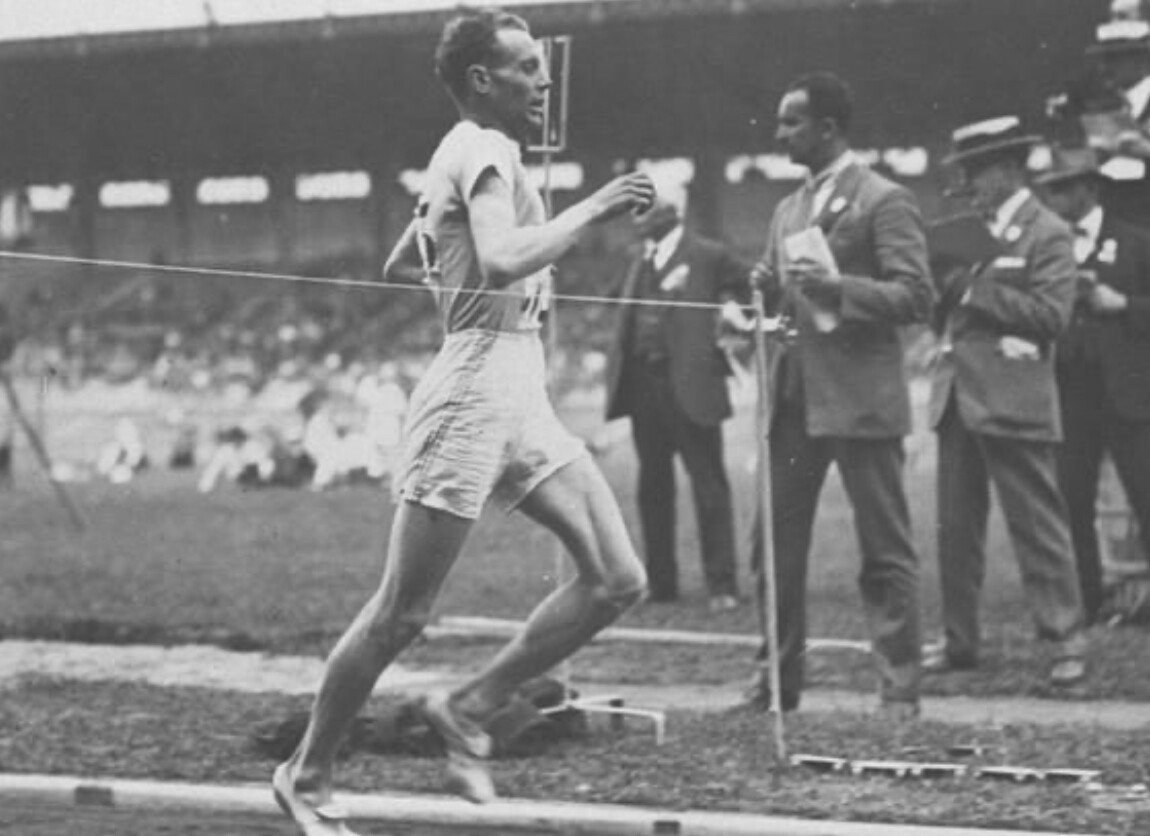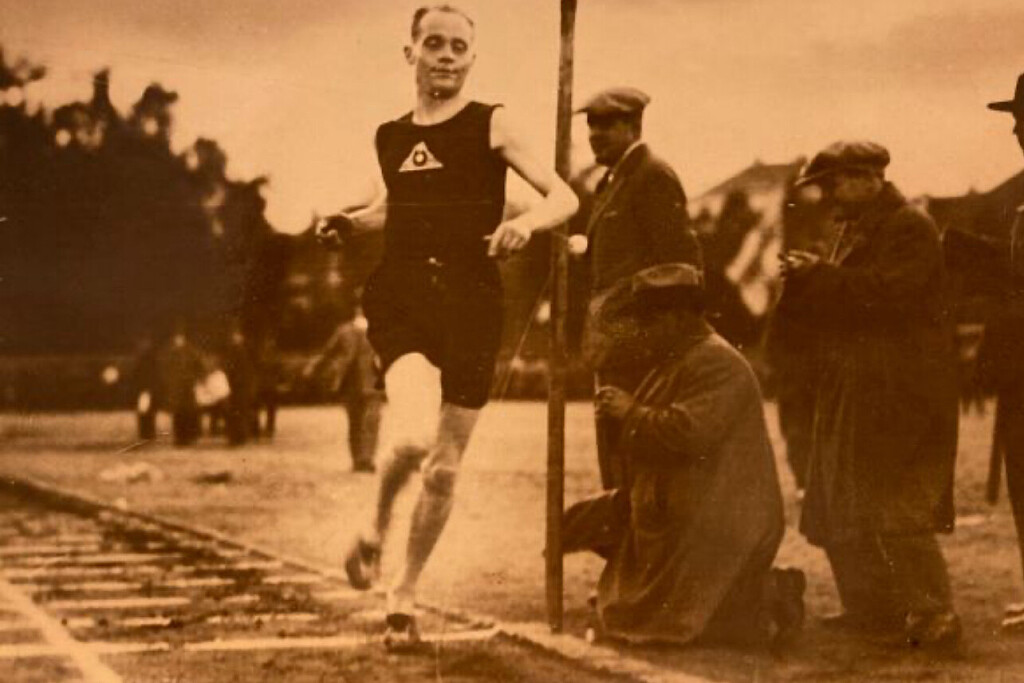Running News Daily
Running News Daily is edited by Bob Anderson. Send your news items to bob@mybestruns.com Advertising opportunities available. Train the Kenyan Way at KATA Kenya and Portugal owned and operated by Bob Anderson. Be sure to catch our movie A Long Run the movie KATA Running Camps and KATA Potato Farms - 31 now open in Kenya! https://kata.ke/
Index to Daily Posts · Sign Up For Updates · Run The World Feed
A century since Nurmi set 1500m and 5000m world records in one evening
Paavo Nurmi was the first and Said Aouita is currently the last man to have held the 1500m and 5000m world records at the same time*.
When Aouita achieved the feat, in the European summer of 1985, there were 27 days between the Moroccan’s 13:00.40 clocking for the longer distance in Oslo and his 3:29.46 metric mile in Nice.

When Nurmi became the first to accomplish this rare world record double, in Helsinki 100 years ago, the interval was a mere 65 minutes and 35.6 seconds.
That was the precise gap between ‘Peerless Paavo’ crossing the finish line in the picturesque sylvan setting of the Elaintarha Zoological Gardens Sports Ground in the 1500m and then the 5000m on the momentous evening of 19 June 1924.
It’s a measure of how huge a phenomenon the enigmatic Nurmi happened to be.
It’s the distance running equivalent of Jesse Owens’ Day of Days, when the great man notched four world records – six, with metric equivalents – in the space of 45 minutes at Ann Arbor, Michigan, in 1935.
Olympic dress rehearsal
The gap between the start times of Nurmi’s two races at Elaintarha in 1924 was actually 55 minutes; the 1500m set off at 7:05pm and the 5000m at 8:00pm. This was to replicate the schedule for the finals of each event at the Olympic Games in Paris the following month.
Nurmi proceeded to emerge victorious from both events in the pressure cooker of Stade Colombes in Olympic record times. He then claimed three more golds, with individual and team cross country victories and success in the 3000m team race.
To coincide with the 2024 Olympics in the French capital and the centenary of the 1924 Games in Paris, with the assistance of World Athletics Heritage, Nurmi’s record Olympic track and field haul of five golds from a single Games is on display in an exhibition entitled D’or, d’argent, de bronze - une histoire de la medaille Olympique at the museum of the Monnaie de Paris on the left bank of the Seine.
The Phantom Finn
Meanwhile, the land of perhaps the most ardent track and field followers can celebrate the anniversary of the first of the supreme Flying Finn’s finest hours: Nurmi’s wondrous world record double amid the birch and pine trees of the Elaintarha Sports Ground.
At that time, six days past his 27th birthday, Nurmi had established himself as the planet’s preeminent distance runner, having assumed the mantle from his boyhood hero, Hannes Kolehmainen, who completed a hattrick of Olympic golds in 1912, at 5000m, 10,000m and cross country.
Whereas the affable Kolehmainen was regarded as the smiling Suomi star of the Stockholm Olympics, the taciturn Nurmi was seen as the unsmiling Finnish crown prince of distance running.
He had endured a tough upbringing in the south-west of the country, leaving school at the age of 12 after his father died to haul goods up the steep slope to Turku railway station as a delivery boy. He used the trams of Turku as his pacemakers, and walked and ran for hours in the surrounding forests.
“Nurmi was enigmatic, sphinx-like, a god in a cloud,” wrote Norman Harris and Ron Clarke in The Lonely Breed. “He was stern and silent, with uncompromising self-discipline and white-hot ambition, bearing the closest possible resemblance in athletics to Napoleon Bonaparte.”
By 1924, the ‘Phantom Finn,’ as the Greta Garbo of the track was dubbed by the press, had claimed three of his nine Olympic gold medals and set six of his 22 world records. At the 1920 Olympics in Antwerp, he succeeded Kolehmainen as 10,000m champion – his ageing idol stepping up in distance to win the marathon – and also won individual and team cross country golds.
“The injury was a bad thing”
When the punishing timetable for Paris was published, the Finnish athletics authorities chose the US-based Ville Ritola as their main man for the 10,000m and omitted Nurmi. The reigning champion requested a place but was asked to run behind Ritola for second place, to save himself for the 1500m and 5000m.
When Nurmi refused, he was offered a slot in the 800m instead. He declined that offer too.
Amid the controversy, Nurmi injured a knee when slipping on ice in a 7km cross country race. He had to rest for two weeks, then walk with his leg straight for several more weeks, pummelling away on a boxing punchbag to maintain some fitness.
Rumours spread that he might not be fit for Paris but, at his insistence, the 1500m and 5000m races were arranged with an hour of each other at Elaintarha. Nurmi wanted to show that he was ready for the mighty challenge in the French capital.
First came the 1500m. The world record stood at 3:54.7, set by Swede John Sander in 1917, though Nurmi had run quicker (3:53.0) en route to his mile record of 4:10.4 in Stockholm in 1923.
It was Nurmi’s want to burn off the opposition with a fast opening lap and he set off with a split of 57.3 on his way to an undisputed world record time of 3:52.6.
There were no signs of fatigue in the 5000m. Nurmi opened with a lap of 65.0 and closed with 62.7. His finishing time was 14:28.2 – a staggering 7.2 seconds inside the global mark he had set in Stockholm two years previously.
“He seemed to be venting anger stored up from the injury,” wrote Harris and Clarke, who knew a thing or two about world record breaking.
It was put to Nurmi that the injury had been a blessing in disguise, that the enforced rest had done him good. “No, not at all,” he angrily replied. “The injury was a bad thing.”
It was a bad thing for Nurmi’s rivals that he arrived in Paris fully recovered and fully firing. Nothing could stop the Phantom Finn from ghosting into the Olympic record books.
by World Athletics
Login to leave a comment




